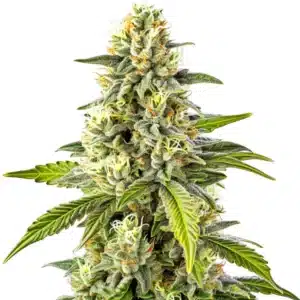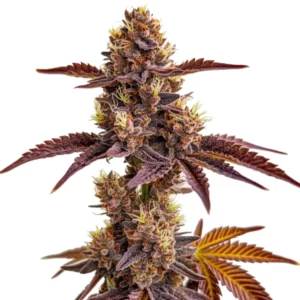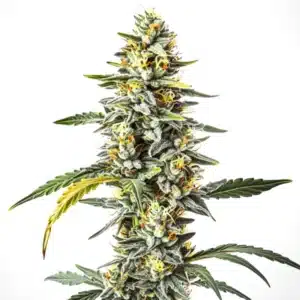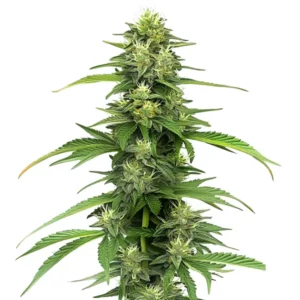
Benefits of Cannabis for Mental Health: Facts
Overview of Benefits of Cannabis for Mental Health
Enhancing Mood and Reducing Anxiety
Ancient remedies once employed natural herbs to calm the mind, and modern investigations now consider cannabis for mental health as a way to enhance mood and reduce anxiety. Many studies indicate that certain cannabinoids may help lower stress levels by interacting with brain receptors that regulate emotion. This traditional approach has evolved into targeted treatment strategies that support mental balance. Patients using cannabis for mental health often report a noticeable decrease in anxious feelings and improved overall mood.
Recent observations in clinical settings suggest that using natural cannabis products can provide gentle relief from persistent anxiety. When administered correctly, cannabis for mental health may complement standard therapies and offer additional support by modulating neurotransmitter activity. Many individuals find that a balanced cannabinoid profile can lead to a calmer mind and a more stable mood, reinforcing its value as part of an integrative treatment plan.
Recommended Strains
Cheese
|
|
THC | 14% - 18% (Medium) |
|
|
Type | Feminized |
|
|
Yield | Medium |
|
|
Phenotype | 60% Indica / 40% Sativa |
Cheese Auto
|
|
THC | 10% - 15% (Low) |
|
|
Type | Autoflowering |
|
|
Yield | Medium |
|
|
Phenotype | 75% Indica / 25% Sativa |
Supporting Stress Relief and Emotional Balance
Stress is a common challenge for many, and cannabis for mental health offers potential benefits in promoting emotional balance. Some natural compounds in cannabis are believed to help regulate stress responses by influencing the endocannabinoid system. This regulatory effect may contribute to reduced tension and a more harmonious emotional state. Families and patients seeking natural support often turn to cannabis to manage everyday stress in a non-invasive way.
Clinical reports indicate that when cannabis is used alongside other therapies, it can contribute to sustained stress relief. The calming properties of specific cannabinoids assist in moderating overactive stress responses, thereby promoting a more balanced emotional state.
Promos & Deals
Scientific Insights on Cannabis for Mental Health
Cannabinoid Effects on Brain Chemistry
Scientific studies have shown that cannabinoids interact with brain receptors to influence mood and stress levels. Research indicates that cannabis may help regulate the release of neurotransmitters, which can affect emotional stability. Laboratory experiments reveal that natural compounds found in cannabis contribute to changes in brain chemistry that may result in reduced anxiety and improved mood regulation. These findings offer measurable evidence supporting the use of natural cannabis products as a supplemental approach in mental health care.
Clinical Research on Mental Health Outcomes
Clinical trials on cannabis have produced promising data regarding its potential benefits in alleviating symptoms of anxiety and depression. Patients participating in these studies have reported improvements in mood and reductions in stress levels. While research remains ongoing, preliminary results suggest that well-formulated natural cannabis products may help support mental stability when used alongside conventional therapies.
Researchers have conducted multiple controlled studies to assess the impact of natural cannabinoids on mental health outcomes. The data reveal that specific strains and formulations can lead to significant symptom relief for some patients.

Integrative Strategies for Cannabis for Mental Health Support
Complementing Conventional Treatments
Many healthcare professionals now consider natural therapies to be a beneficial complement to standard mental health treatments. When integrated with traditional approaches such as psychotherapy and medication, may help enhance overall treatment outcomes.
In clinical practice, some patients have found that adding cannabis for mental health to their existing treatment regimen leads to improved symptom management. Healthcare providers often recommend that natural cannabis products be used under careful supervision as an adjunct to prescribed therapies.
Tailoring Dosage and Delivery Methods
Personalized treatment is key when incorporating cannabis for mental health into an overall care plan. Physicians often begin with low doses of natural cannabis products and adjust gradually based on individual response. Options such as oils, capsules, and vaporizers allow patients to choose a delivery method that suits their specific needs. This individualized approach supports a safer and more effective integration of natural therapies.
Healthcare practitioners work closely with patients to determine the most appropriate form and dosage of cannabis for mental health. Through careful monitoring and regular consultations, providers can fine-tune treatment protocols to ensure maximum therapeutic benefit. This customized strategy allows for flexibility in addressing diverse mental health challenges while maintaining a focus on safety and overall wellness.
Safety and Quality Standards in Cannabis for Mental Health
Regulatory Guidelines and Quality Control
Regulatory agencies require thorough testing for purity, potency, and contaminants before products reach consumers. These quality control measures help build trust in cannabis for mental health and guarantee that each product delivers consistent, safe benefits. Adherence to these guidelines is essential for ensuring that natural therapies are both effective and secure for everyday use.
Manufacturers follow rigorous protocols during cultivation, extraction, and packaging to comply with legal standards. Transparent labeling and regular audits further reinforce the safety of cannabis for mental health. Consumers can rely on these products to meet strict quality benchmarks, ensuring that every purchase contributes to their overall well-being. Such diligent oversight fosters a trustworthy marketplace where natural products maintain their integrity and reliability.
Best Practices for Safe Use and Storage
Safe usage practices are vital for maximizing the benefits of natural therapies while minimizing risks. Consumers who use cannabis for mental health should follow dosing instructions provided by healthcare professionals and store products in appropriate conditions. Keeping cannabis products in cool, dry environments away from light preserves their potency and ensures consistent effects. Clear guidelines on usage and storage help users avoid potential hazards and maintain the product’s therapeutic properties.

FAQs about cannabis for mental health
What benefits does cannabis for mental health offer?
Cannabis for mental health may help alleviate symptoms like anxiety, depression, and stress. Studies suggest that specific cannabinoids support mood stabilization and emotional balance when used responsibly alongside conventional treatments. Many patients report feeling calmer and more centered, experiencing reduced anxiety levels and improved daily functioning. This natural approach can complement traditional therapies to enhance overall well-being while offering a supportive alternative for managing mental health challenges effectively.
How do experts determine the optimal use of cannabis for mental health?
Experts determine the optimal use of cannabis for mental health by analyzing cannabinoid profiles, dosage levels, and clinical research data. They evaluate product quality and monitor patient responses to recommend natural therapies that effectively complement conventional treatments. By tailoring dosage and delivery methods to individual needs, healthcare providers can maximize benefits while minimizing side effects. This careful evaluation ensures that cannabis for mental health delivers measurable support to improve emotional stability and overall quality of life.
What safety protocols are followed when using cannabis for mental health?
Healthcare professionals enforce strict safety protocols for cannabis for mental health by ensuring that all products undergo comprehensive testing for purity, potency, and contaminants. Regulatory agencies and quality control measures guarantee that consumers receive safe, reliable products. Patients receive clear instructions on dosage, proper storage, and usage to minimize risks. These protocols help ensure that natural cannabis products provide consistent benefits while protecting users’ well-being throughout their treatment process.




















